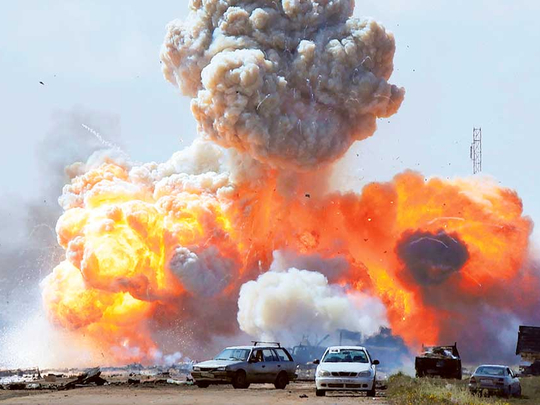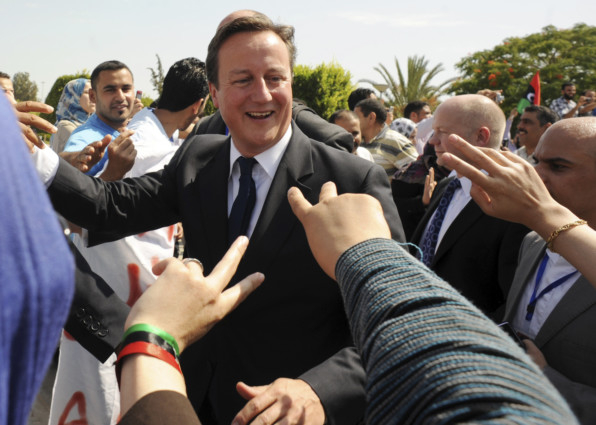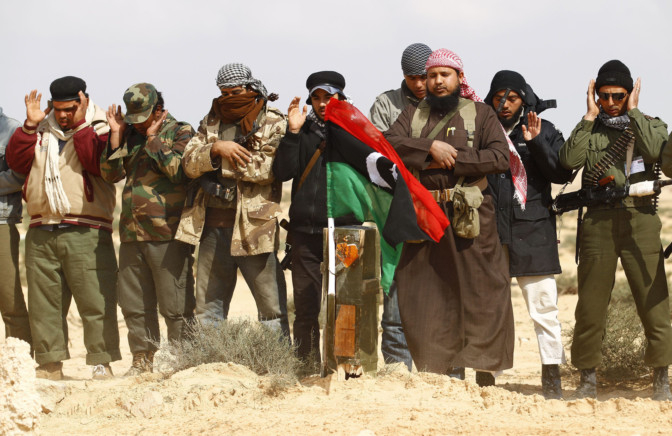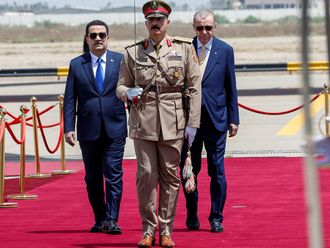
London: David Cameron’s “ill-conceived” intervention in Libya led to the rise of Daesh in North Africa, according to a scathing report from MPs.
The former prime minister took the country to war by ordering air strikes against Col Muammar Gaddafi in 2011 on a series of “erroneous assumptions” and then drifted into an “opportunistic” policy of regime change that left Libya in chaos.
MPs accuse Cameron of misunderstanding what was happening on the ground, and doing too little to find a political way to get the dictator to stand down. The government acted on exaggerated threats that Gaddafi was about to massacre civilians in Benghazi, and failed to spot significant numbers of Islamist extremists were among the rebels, MPs say.
The report from the Commons foreign affairs committee on Wednesday follows Cameron’s resignation as an MP and attacks an intervention he once claimed as a foreign policy triumph. Barack Obama earlier this year criticised Cameron for becoming distracted after the intervention and allowing Libya to become a “sh*t show”.
The MPs conclude: “It is difficult to disagree with this pithy assessment.” The 49-page report finds Britain had no plan for once Gaddafi was gone. It says: “The result was political and economic collapse, inter-militia and intertribal warfare, humanitarian and migrant crises, widespread human rights violations, the spread of Gaddafi regime weapons across the region and the growth of [Daesh] in North Africa.”
Cameron was “ultimately responsible” for the failure in strategy. Crispin Blunt, the chairman of the committee, said the intervention was “very much Cameron’s production” and its results “are still playing out today”.
British policy before the military action began in March 2011 and afterwards was “founded on erroneous assumptions and an incomplete understanding of the country and the situation”, he said. “Other political options were available. Political engagement might have delivered civilian protection, regime change and reform at a lesser cost to the UK and Libya.”
The inquiry, which took evidence from figures including William Hague, Liam Fox, Tony Blair, military chiefs and academics, found Libya had since become a haven for Daesh militants who declare allegiance to the extremist group’s “caliphate” in the Middle East.
The militants have trained terrorists such as Saif Al Deen Rezgui who massacred British holidaymakers in Sousse, Tunisia, last year. The report found Gaddafi had spent £30 billion on weapons and stowed many of them in warehouses. By failing to secure these stockpiles in 2011, the West allowed arms to get into the hands of terrorist groups across North Africa.
The MPs warned that the world must get behind Libya’s UN-backed Government of National Accord to prevent the country descending into civil war. But they cautioned that although British troops could help train Libyan forces, they should not be sent if they would inflame anti-Western feeling.
A Foreign Office spokesman said the decision to intervene in Libya was an international one, called for by the Arab League and authorised by the UN Security Council.













